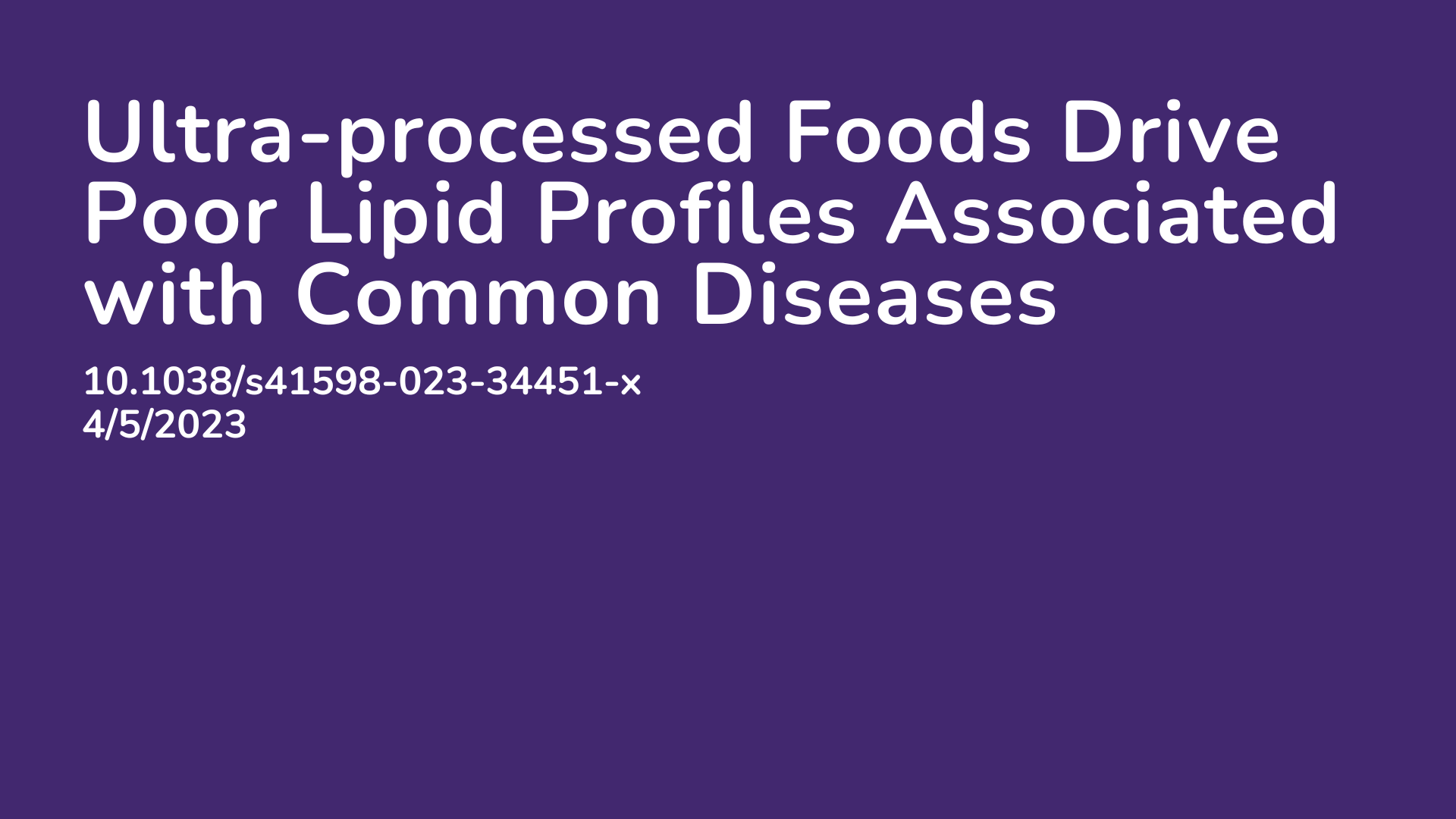Summary:
Dyslipidemia is defined as abnormalities to lipid (fat) profiles, such as elevated total cholesterol and triglycerides. Abnormalities of lipid profiles are associated with many conditions such as cardiovascular diseases and type 2 diabetes. Genetic factors as well as several environmental factors such as smoking, dietary habits, sedentary lifestyle, and socio-economic status are determinants of lipid profiles. The aim of this study was to analyse the association between ultra-processed foods and lipid profiles in people from Iran. The study included 236 individuals aged between 20-50. Food intake was assessed using a food-frequency questionnaire and levels of total cholesterol, triglycerides and other lipid profiles were measured. The results showed that higher ultra-processed food intake was associated with negative and health-concerning lipid profiles. There was also significant associations between ultra-processed food intake and poor dietary nutrient profiles. In conclusion, ultra-processed food consumption could negatively impact overall nutrient status and lead to concerning changes to lipid profiles which may negatively impact overall health.
Abstract:
The purpose of this cross-sectional study was to examine the association between ultra-processed foods (UPFs) intake and lipid profile in Iranian people. The study was performed on 236 individuals with the age range of 20–50 years in Shiraz, Iran. Food intakes of the participants were evaluated using a 168-item food frequency questionnaire (FFQ) which was previously validated in Iranian populations. In order to estimate the ultra-processed foods intake, classification of NOVA food group was used. Serum lipids including total cholesterol (TC), triglyceride (TG), high density lipoprotein cholesterol (HDL-C) and low density lipoprotein cholesterol (LDL-C) were measured. The results showed that mean of age and body mass index (BMI) of the participants were 45.98 years and 28.28 kg/m2, respectively. Logistic regression was used to evaluation the relation between UPFs intake and lipid profile. Higher UPFs intake was associated with increased OR of TG and HDL abnormality in both crude (OR 3.41; 95% CI 1.58, 7.34; P-trend = 0.001 and OR 2.99; 95% CI 1.31, 6.82; P-trend = 0.010) and adjusted models (OR 3.69; 95% CI 1.67, 8.16; P-trend = 0.001 and OR 3.38 95% CI 1.42, 8.07; P-trend = 0.009). But, there were no association between UPFs intake and other indices of lipid profile. Also, we found significant associations between UPFs intake and dietary nutrient profiles. In conclusion, UPFs consumption could worsen the nutritional profile of the diet and lead to negative changes in some indices of the lipid profile.
Article Publication Date: 4/5/2023
DOI: 10.1038/s41598-023-34451-x



